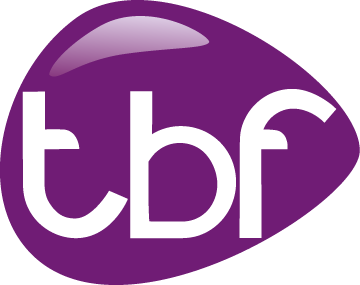You can find guidance on the criteria for this category here
The bus operator awards are divided into three sub-categories, each of which carries a prize and title. The winners of each sub-category are then judged against each other for the overall title of UK Bus Operator of the Year. In other respects, the criteria and entry requirements are the same. The winners of these awards will demonstrate and achieve consistently excellent delivery of customer service. The operators will demonstrate their success through sustained effort. The winners will show that they:
- Develop policies to make their services as accessible as possible to as wide a cross-section of the community as possible
- Identify with and respond to the communities they serve
- Always strive to sustain and grow the bus market
- Invest in their fleet and staff
- Are financially sound
- Form effective partnerships, not least with local authorities and Local Enterprise Partnerships (LEPs)
- Maintain high operational and engineering standards
- Are innovative
- Give priority to the Health and Safety of staff and passengers through comprehensive risk management.
Mystery traveller assessments will be carried out on a selection of the services provided by the entrants that are short-listed for each of the Awards.
Who can nominate operators for these awards?
We welcome nominations for all three categories from customers, authorities, user groups or bus operators. Self-nomination is acceptable.
Top City Operator
Who can be nominated?
This Award is open to operators of registered local bus services based in, or operating wholly or mainly in:
- Greater London
- The PTE areas of:
- Greater Manchester
- Merseyside
- South Yorkshire
- Tyne and Wear
- West Midlands
- West Yorkshire
- Other major cities or conurbations with populations of over 250,000 and a population density greater than 15,000 persons per hectare. These are:
- Belfast
- Brighton & Hove
- Bristol
- Cardiff
- Edinburgh
- Glasgow
- Kingston-upon-Hull
- Leicester
- Nottingham
- Plymouth
- Stoke-on-Trent.
Top Independent Operator
Who can be nominated?
This Award is open to operators of registered local bus services which are independently owned and with operators’ (‘O’) licences for up to 100 vehicles. Judges will be flexible in accepting entries for otherwise eligible companies with larger numbers of discs within a margin of 10-15%. In this context, ‘independently owned’ means not in the sole or majority ownership of a public limited company (plc), a local authority or a holding company which owns three or more bus operating subsidiaries. Subsidiaries of the public companies or holding companies should enter one of the categories for City or Shire Operators, as appropriate.
Top Shire Operator
Who can be nominated?
This Award is open to bus companies operating service networks wholly or mainly outside the major conurbations. Operators who are not subsidiaries of a group or holding company owning three or more subsidiaries and who hold ‘O’ licences for fewer than 100 vehicles are recommended to enter the Independent Operator of the Year.
The Grand Prix: UK Bus Operator of the Year
Pre-eminent amongst bus operators, the UK Bus Operator of the Year, more than any other, delivers consistently excellent customer service. The company will demonstrate its success through sustained effort over the long term. The crème-de-la-crème of the industry, the winner of the UK Bus Operator of the Year will be selected from the highest-scoring contestants of the City Operator, Independent Operator and Shire Operator Awards. Separate entries are therefore not sought for this category. In selecting the overall winner, the UK Bus Operator of the Year, judges will consider the different circumstances of operators of varying sizes and operating terrains in reaching their overall conclusion. Mystery traveller assessments will be important and may well be a deciding factor.
Criteria and Entry Requirements for all Bus Operator Awards:
The short-list will be determined on the basis of the quality of the submissions, which need to:
- Provide the full range of information requested in the Key Performance Indicators section of the entry form
- Address as fully as possible the individual criteria headings on the form.
It is important that all KPIs and each of the following criteria are addressed as fully as possible because the allocated marks are not transferable. The following notes provide further guidance on the information to be provided under each of the headings:
- Customer Relations: show how the operator maintains and improves customer relations and monitors its operations to optimise performance. For example how it uses:
- technology, including social media, real-time information and mobile phone apps
- other methods of communicating with customers and potential customers including printed information
- customer satisfaction surveys, suggestion and complaint handling procedures and the monitoring of feedback.
- Management of Stakeholder Relations and Partnerships: describe the company’s approach to the management of its relationships with local authorities, LEPs and other community and local business organisations. Describe the work done on partnerships with authorities and other bodies and state how it fosters and contributes to the life of the communities it serves.
- Where operated, with the approach to and results of delivering local authority contracted local bus services should be described.
- Market Growth and Development: show how the operator contributes to sustaining and expanding the market for public transport in their area by
- offering different payment methods and range of tickets including discounts for specific groups, for example young people
- providing a range of commercial services at different times of the day and days of the week
- introducing innovations over the preceding twelve months
- The descriptions and examples should be supported where possible by statistics to confirm patronage and revenue trends and by evidence of modal shift.
- Employee Relations and Training: provide evidence of the company’s employee relations policies and any discernible outcomes, including;
- diversity
- equal opportunities
- training, including CPC progress
- employee development programmes, such as advanced driver training and testing
- other initiatives and/or practices that engender staff loyalty.
- Health, Safety and Risk Management: demonstrate the company’s approach to risk assessment in all its activities including;
- a commentary on Health and Safety issues for the past year, supported by reports on any significant incidents,
- showing how the company assesses the impact of its activities on staff, passengers and the general public and has monitoring and control measures to reduce risk and the level of the residual risks.
- Environmental and CSR Matters: describe the operator’s approach to environmental matters and social responsibility and consequential outcomes. Also include how many vehicles meet Euro V and VI and how many electric hybrid, all electric and other alternative fuelled vehicles are in the fleet.
- Policies on Diversity and Accessibility: state whether there are policies for different customer groups, for example recognising disability and diversity, and/or deprived localities and specifically describe the operator’s approach to improving or promoting the accessibility of their product for people with various types of mobility difficulty.
- Serious Complaints and Enforcement Action: state whether or not the company was referred to the Bus Appeals Body within the last three years prior to submission of this entry. If so, the issues and the outcome need to be described. Entrants should also state whether or not there has been any Traffic Commissioner action in the three years prior to entry or whether any investigation, disciplinary hearing or known VOSA report is ongoing at the time of entry. If so, provide a full account of the matter(s).
Shortlisted entries will be assessed by ‘mystery travellers’ to monitor the standard of service delivery.
SENDING IMAGES
Please ensure that you send JPEG files. PDFs, pictures in Word files and in PowerPoint presentations are NOT acceptable.
For people categories, it is nice to see the person in a work environment – in a driving cab, by a vehicle or with colleagues, for example – but please ensure that the nominee is clearly recognisable. A head and shoulders shot is also useful. For other categories, please send pictures of your project or your company’s activities, and send one of the team involved.
These photographs may be used by us in a variety of ways, on the Bus Awards web site, in video presentations and in souvenir brochures and other printed material including the trade press.So that we can make the most effective use of the pictures you send us, please try to ensure that they are high-resolution JPG images (300 dpi) and at least 1200 x 1600 pixels in size. This implies a file size of at least several hundred KB – more is better. If you are using a mobile phone, please select the highest quality/most mega pixel/highest file size setting.
You do not have permission to view this form.













